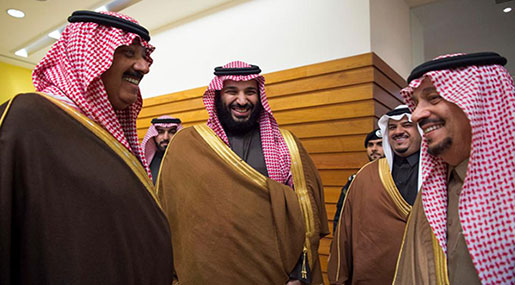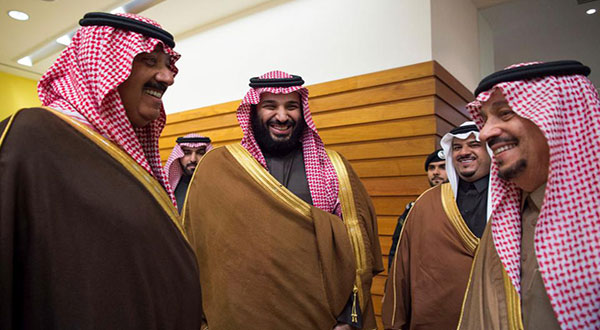
Saudi Arabia May Get $100 Billion from Jailed Princes, Officials Paying Their Way Out of Prison Time

Tom O'Connor
Saudi Arabia may receive up to $100 billion in settlements from detained princes and officials accused of corruption and looking to avoid serious jail time.

Citing an unnamed senior government official, Bloomberg News reported Monday that talks between authorities and suspects were expected to end this month and revealed the massive sum, which was just short of the entire Gross Domestic Product reported by neighboring oil-rich monarchy Kuwait in 2016.
Saudi Arabia has kept quiet about ongoing negotiations following November's massive anti-corruption purge, but Attorney General Sheikh Saud al-Mojeb confirmed that 90 suspects had already been released and the roughly 95 remaining in their Ritz-Carlton luxury prison could still buy their way out before criminal charges were rolled out.
"The royal order was clear," Mojeb said Sunday, according to Bloomberg News. "Those who express remorse and agree to settle will have any criminal proceedings against them dropped."
While still unconfirmed, the $100 billion figure was previously attributed to Mojeb when he described the scope of the decades-long "systematic corruption and embezzlement" that was targeted in the early November anti-graft sweep, The Financial Times reported. The purge was carried out under the orders of a new authoritative body created by King Salman bin Abdulaziz Al Saud and headed by his son, Crown Prince Mohammed bin Salman bin Abdulaziz Al Saud.
In a follow-up piece published a week later and about two weeks after the arrests, The Financial Times cited sources close to the negotiations as saying the Saudi government looked to make up at least the $100 billion it alleged to have lost to criminal activities and could aim to seize as much as $300 billion from more than 200 princes and other current and former officials initially taken in. Later that month, a BBC News report cited an official on the anti-corruption committee as saying, "Even if we get 100 billion back, that would be good."
In December, Saudi Arabia announced a $261 billion annual budget for 2018, its largest ever, according to Saudi Arabia's Al Arabiya, an outlet close to the royal family.
While the shocking sweep has officially been billed as part of a larger campaign to reform the government and weed out corruption, it was also largely seen from the outside as a power play by Mohammed bin Salman. The arrests were carried out as pro-Saudi Lebanese Prime Minister Saad Hariri announced his surprise-and potentially forced-resignation after flying to Riyadh and Mohammed bin Salman threatened Iran with war ...
Mohammed bin Salman has envisioned massive social and economic reforms for his country, which was set to become the last in the world to allow women to drive as of June. He has, however, been deeply criticized for continuing other ultraconservative traditions and for leading the war in Yemen, the Arab World's poorest country and often considered the world's worst humanitarian disaster.
In an op-ed entitled "What's after the Ritz?" and featured last week in Saudi newspaper Al Watan, Saudi commentator Safouq al-Shammari defended the crown prince's anti-corruption efforts, but said finding out what the government planned to do with the $100 billion it would reportedly receive was now among the most important questions surrounding the crackdown.
James M. Dorsey, a senior fellow at the S. Rajaratnam School of International Studies of Nanyang Technological University in Singapore, has said Saudi Arabia has spent up to $100 billion in the past four decades exporting its hardline brand of Sunni Islam and planned to spend a similar amount in constructing 16 nuclear power reactors by 2030.
The figure was also the estimated price tag of King Abdullah Economic City, an ambitious, futuristic megacity project that was announced in 2005, but remained 75 percent incomplete, according to a report published Monday by Texas-based geopolitical intelligence platform Stratfor.
Source: Newsweek, Edited by website team
Comments



